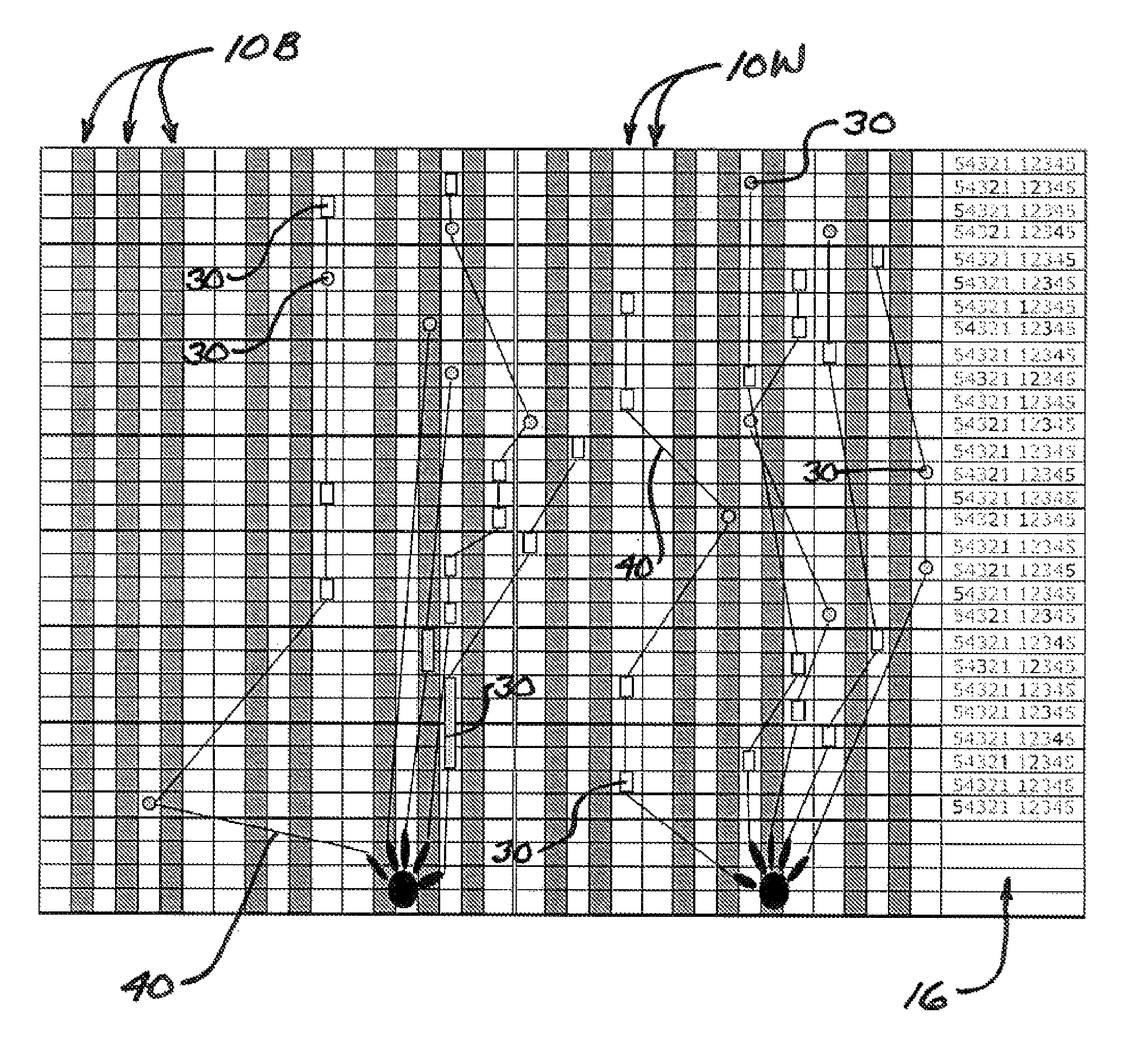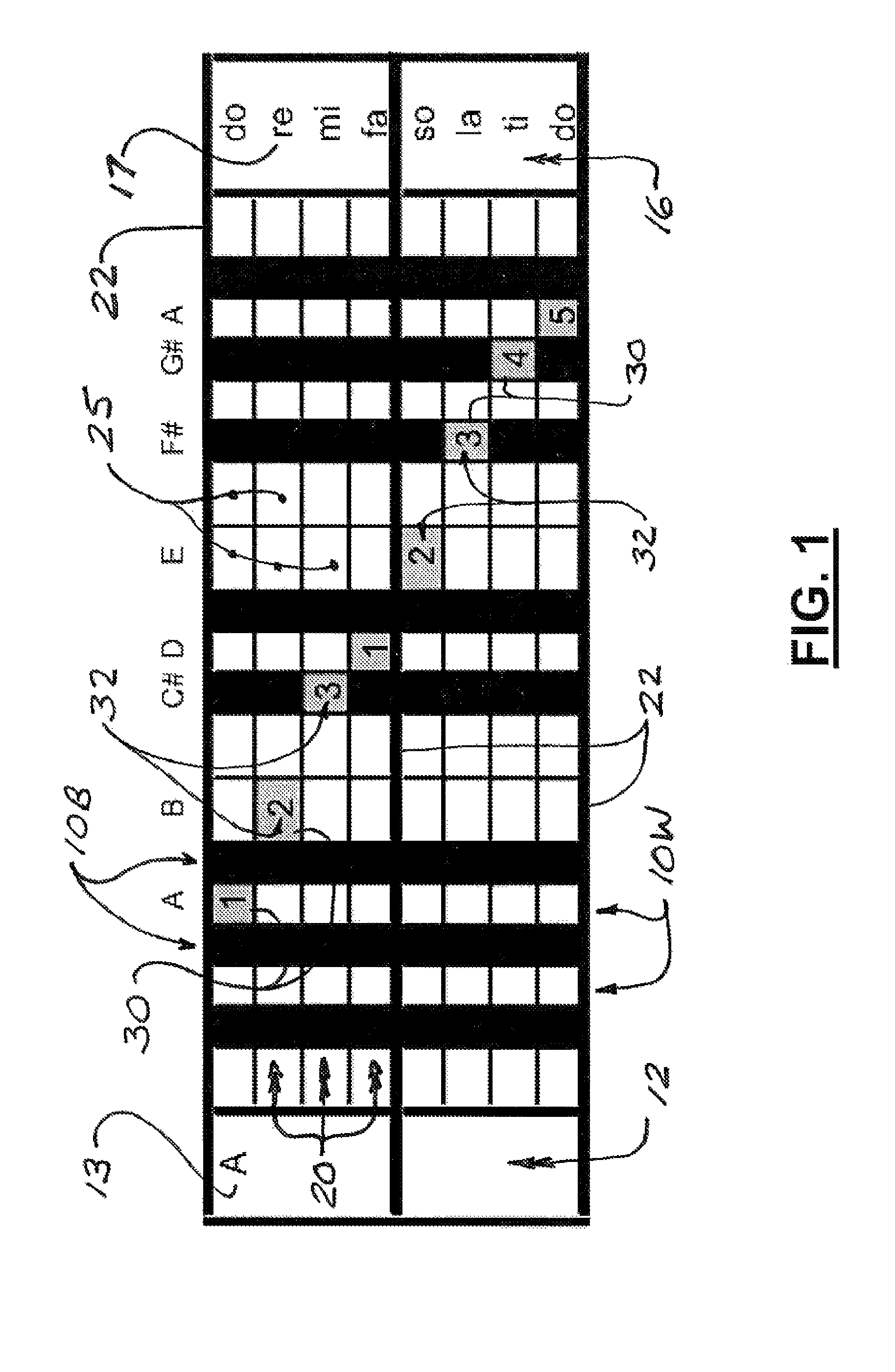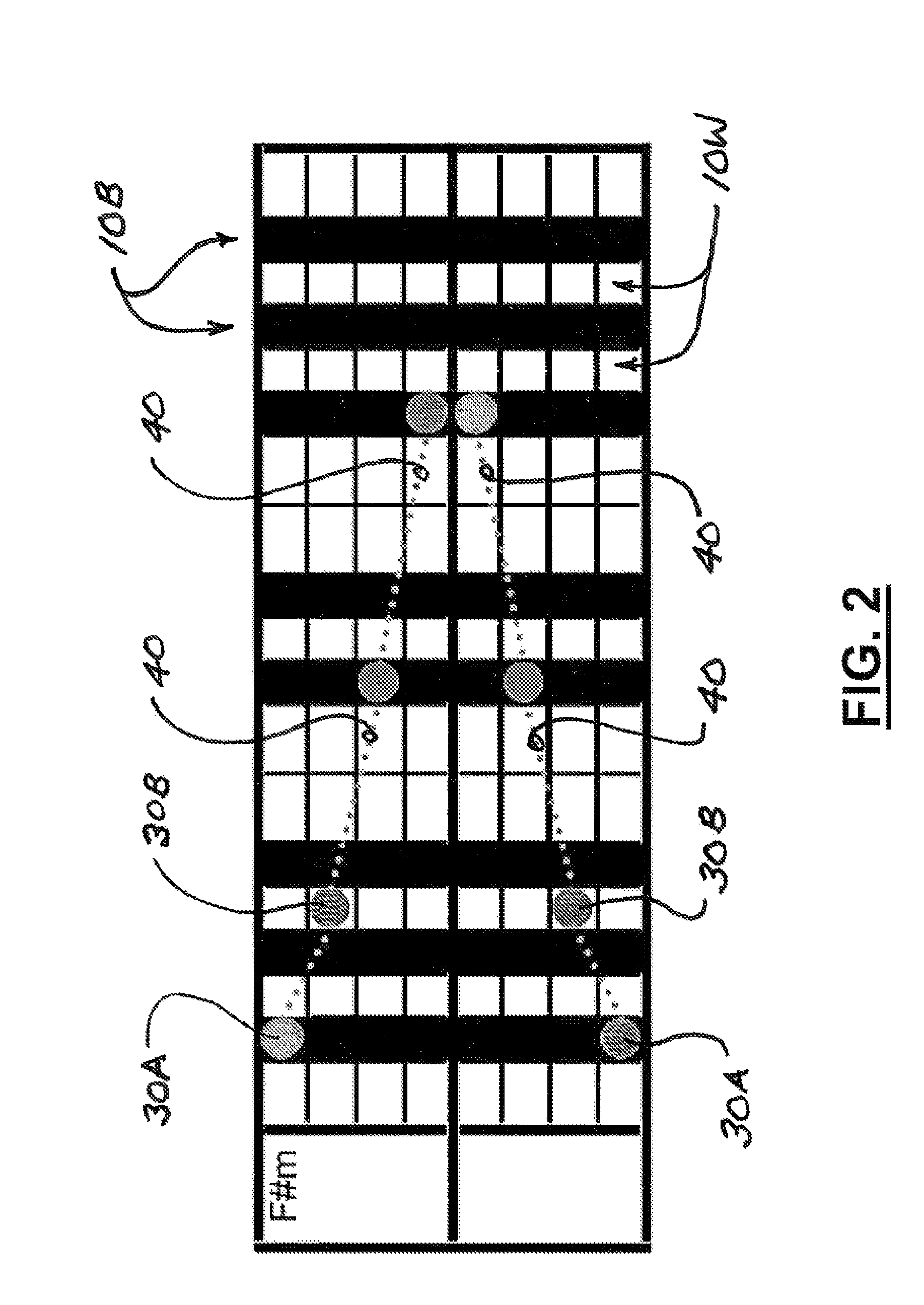Music notation system
a notation system and music technology, applied in the field of music notation systems and methods, can solve the problems of complicated music learning for music students, increased difficulty in music-reading, and yet another difficulty for someone learning to read and play musi
- Summary
- Abstract
- Description
- Claims
- Application Information
AI Technical Summary
Problems solved by technology
Method used
Image
Examples
Embodiment Construction
[0024]In the preferred embodiment, the music notation system of the present invention uses a grid laid out in a fashion analogous to a piano keyboard, as illustrated in FIG. 1, with vertical columns (or “key columns”) 10W corresponding to the white keys on a piano, and key columns 10B corresponding to the black keys on a piano. Key columns 10W and 10B are intersected by horizontal rows (or “beat rows”) 20 which represent time intervals or beats. The beginning and end of each bar or measure or rhythmic grouping of beats in a given musical piece are indicated by heavy horizontal lines (or “bar lines”) 22. Optionally, graphical rhythm indication means may be applied to selected groups of beat rows, to denote emphasis oh particular beats or to otherwise indicate suggested rhythms for performance of the music. In preferred embodiments, the graphical rhythm indication means will be in the form of shading or coloring applied to selected beat rows. However, persons skilled in the art will a...
PUM
 Login to View More
Login to View More Abstract
Description
Claims
Application Information
 Login to View More
Login to View More - R&D
- Intellectual Property
- Life Sciences
- Materials
- Tech Scout
- Unparalleled Data Quality
- Higher Quality Content
- 60% Fewer Hallucinations
Browse by: Latest US Patents, China's latest patents, Technical Efficacy Thesaurus, Application Domain, Technology Topic, Popular Technical Reports.
© 2025 PatSnap. All rights reserved.Legal|Privacy policy|Modern Slavery Act Transparency Statement|Sitemap|About US| Contact US: help@patsnap.com



